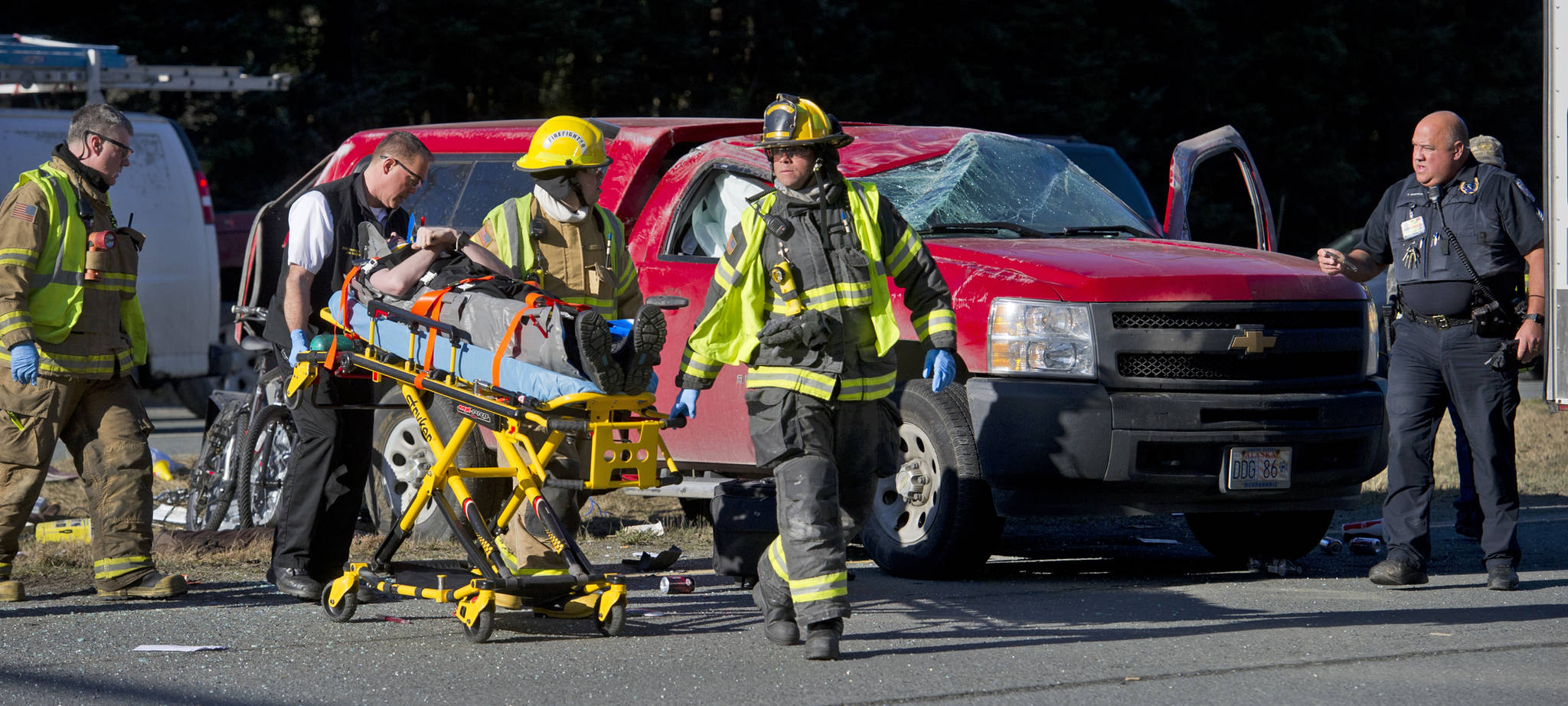When the International Association of Fire Fighters (IAFF) Local 4303 members voted this summer on whether to accept their new contract, they turned it down.
A few months later, the members voted overwhelmingly to accept the new terms of the contract. The key difference, City and Borough of Juneau Human Resources and Risk Management Director Dallas Hargrave said, is a $25,000 bonus for paramedics who stay with the department for five years.
As IAFF President Travis Wolfe explained in an interview after Monday’s meeting, employees are eligible to apply for the bonus when they complete paramedic training through the National Medical Education and Training Center. Wolfe said the department started using the training program last year, and there are currently five people in the program.
Once an employee completes the training and signs on for the bonus, Hargrave explained, the employee gets the $25,000 up front. If the employee leaves before the end of the five-year period, he or she has to pay a portion of it back. According to the contract, the employee would have to pay the entire $25,000 back if they leave within 12 months. If they leave in the second year, they would have to pay 80 percent of it back, and so on.
Current paramedics with the department can also sign up for the bonus and will face the same terms, Hargrave said. He said the city has budgeted enough to pay four of these bonuses next year, and three per year after that. The contract also includes a 2 percent pay increase for union members. A memo from CBJ Human Resources stated that this will cost the city an estimated $189,000 in the 2019 budget.
The City and Borough of Juneau Assembly unanimously voted to finalize the terms of the contract at its meeting Monday. Hargrave and City Manager Rorie Watt both said in interviews Tuesday that it was a priority in negotiations to find a way to encourage paramedics to apply to Capital City Fire/Rescue. Wolfe agreed.
“This one is specifically tailored for paramedics, which is really where our recruitment and retention efforts have struggled and where we need the most help,” Wolfe said. “This is, from what our research has shown, probably the best recruitment and retention tool across the country.”
The tentative contract this summer, Wolfe said, also included a proposed bonus for paramedics but paramedics would have to stay longer to get the bonus and it would be worth $8,000 every three years or so.
CCFR began using the NMETC program last year, Wolfe said, and it’s the first training program the department has had to train paramedics in Juneau. It takes about 18 months to go through the training, he said, plus a year of additional training locally. He said they are about to graduate their first person from the program in the coming months.
Over the past year or so, the Assembly has been trying to find ways to fully staff CCFR and the Juneau Police Department. Former Mayor Ken Koelsch formed a Task Force on Public Safety in the summer of 2017 to examine options for helping CCFR and JPD be more effective.
This summer, the Assembly voted to increase staffing for CCFR by funding a 24-hour ambulance crew. In this year’s budget, the city also added two officer positions for JPD. So far, both organizations have struggled to fill these new positions. Earlier this month, JPD Lt. Krag Campbell said JPD is still nine officers short of having a full staff. The two new officer positions have not been filled, he said.
On Monday night, Wolfe said CCFR still hasn’t been able to fill its new ambulance positions yet either. He said the department is about eight people short of a full staff. He also said there’s been a drop in interest from locals to become volunteer firefighters, which he’s surprised about.
He said it’s concerning not to be able to get talent from nearby, especially because it’s so difficult to get people from afar to move to Juneau. He said wages are still better in Anchorage and Fairbanks than in Juneau, and that Washington state is “miles above us” in terms of wages. According to a report from Business Insider in July, the median annual salary for a firefighter in Washington is $73,380 compared to the median annual salary of $60,790 in Alaska. As a result, the department is looking all the way to the Midwest and the East Coast for new members.
“We’ve got a lot of hurdles to get over, but we’re moving in the right direction,” Wolfe said. “This contract is a good first step.”
• Contact reporter Alex McCarthy at 523-2271 or amccarthy@juneauempire.com. Follow him on Twitter at @akmccarthy.

